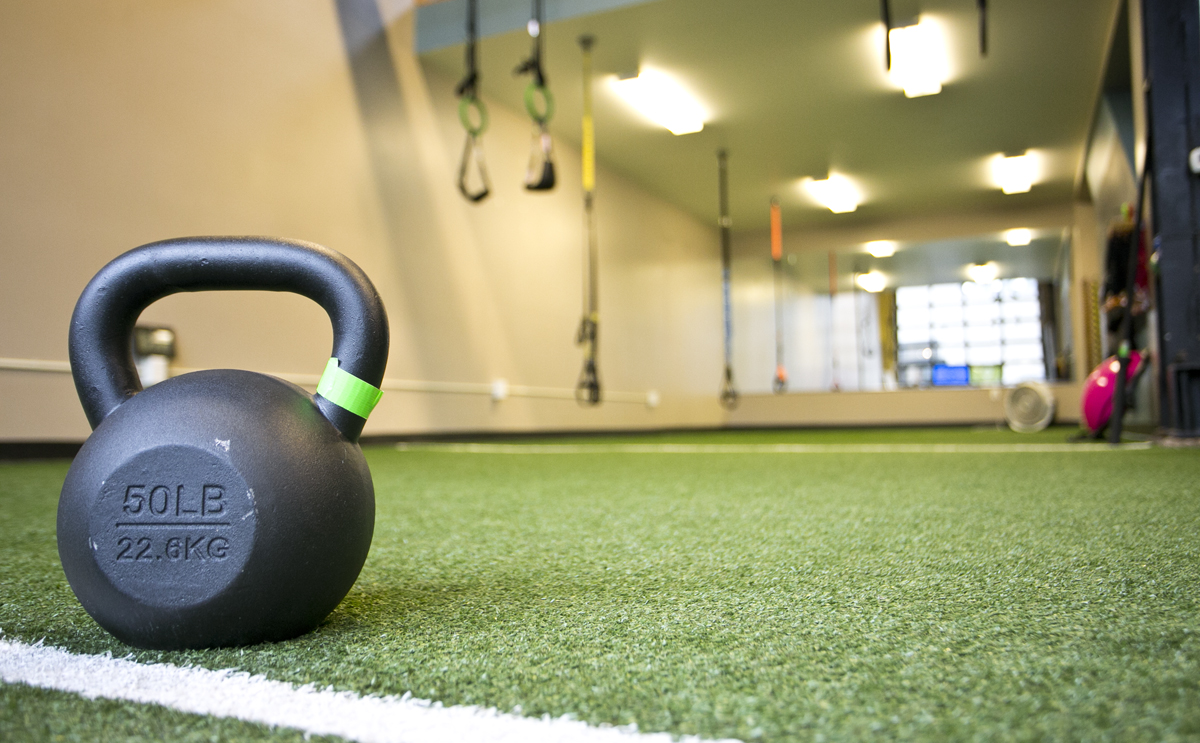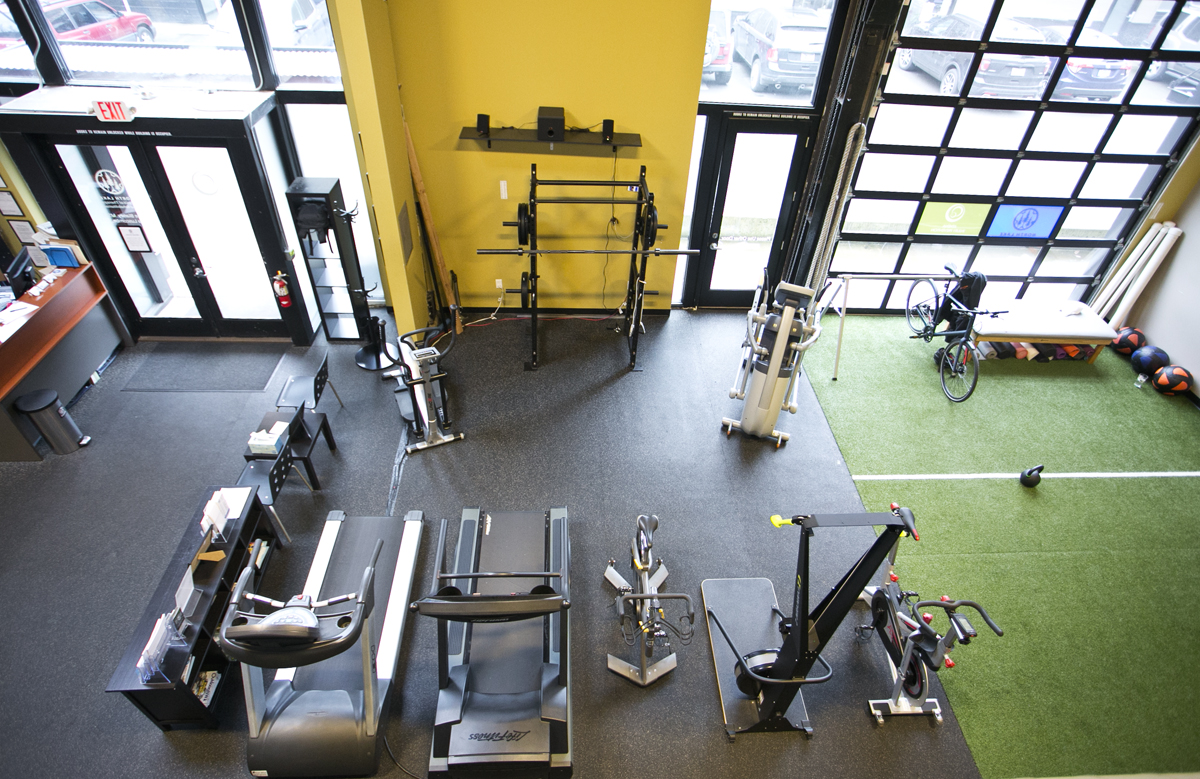Sports Medicine Physical Therapy
When an injury occurs, your physician or athletic trainer may refer you to physical therapy. Sports medicine physical therapy programs, allow athletes of any skill level to recover under the care of a musculoskeletal specialist. Physical therapists have an array of different programs for:
- Your specific type of injury
- The severity of the injury
- Your fitness level
However, you don’t have to wait until you have an injury to get help from a physical therapist. Sometimes the best medicine is prevention.
How Pain Turns Into an Injury:
- Pain is the first clue your body is telling you something is wrong
- Your body tries to accommodate the pain. Weakness and stiffness increases
- If left untreated your body will breakdown, the pain will become chronic or acute, and it is more likely that you will stop training
Common Sports Medicine Physical Therapy Programs
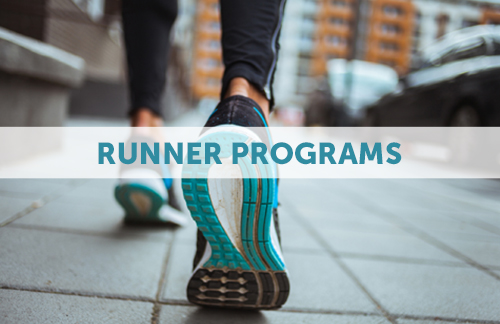
Programs for Runners
Expand For More Info
Overuse musculoskeletal injuries occur frequently in runners. Running with aches and pains or an injury that fails to go away causes frustration and despair for millions of runners across the country. Proper stretching and training principles can reduce your risk of developing a running injury.
A Running Injury Program May Include:
- Running mechanics
- Musculoskeletal symmetry
- Kinetic chain function
- Soft tissue mobilization
- Strength /flexibility/balance/agility
- Nutrition For optimal performance and recovery
- Footwear /need for custom made functional orthotics
- Lifestyle behaviors
- Personal running goals/race preparation to set a personal record
- Gait analysis: Includes videography and a biomechanical analysis with recommendations for areas of improvement
- Custom foot orthotics: Determination of appropriate foot orthotics, fabrication, and ongoing adjustments as needed
- Anti-Gravity Treadmills: Some clinics are equipped with an AlterG Anti-Gravity treadmill™: G-Trainers enable people to improve mobility and health, recover from injury and surgery more effectively, overcome medical challenges that limit movement, and enhance physical performance.
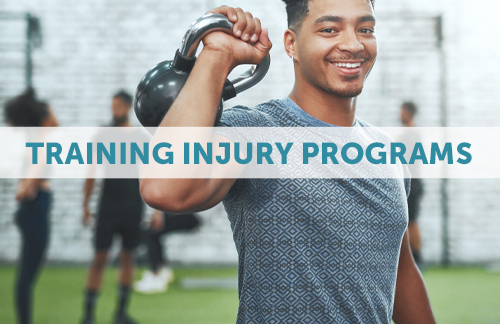
Training Injury Programs
Expand For More Info
Training injuries are those experienced while weight training or sport-specific training.
Common Training Injuries Include:
- Strains & sprains (pulled muscles)
- Tendonitis
- Back/neck pain
- Tennis elbow
- Carpal tunnel
- Muscle tear/rupture
- Separated or dislocated joints
- Bursitis
- Contusions
A Training Injury Program May Include:
- Education on faulty or improper posture or body mechanics with training
- Education and help with technique on exercises that help your muscles stretch farther
- Flexibility training helps prevent cramps, stiffness, and injuries, and can give you a wider range of motion
- Correction of muscle imbalances through flexibility and strength training
- Endurance training
- Kinesiotaping
- Alleviation of pain
- Correction of improper movement patterns
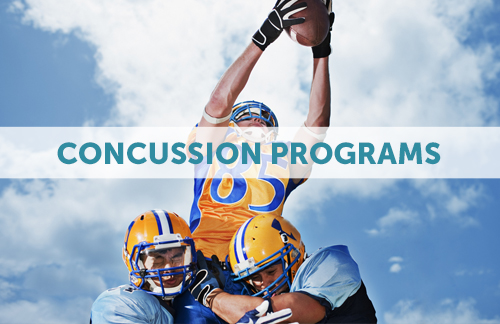
Concussion Recovery Programs
Expand For More Info
Estimates suggest that 1.6 to 3.8 million concussions occur from participation in sports and recreational activities every year. A head injury is a serious condition that can be life-threatening. Concussions may also result from a fall or colliding with obstacles, such as a goalpost or in a work or home environment.
Common Concussion Warning Signs:
Concussions can happen in any sport. Symptoms are not always obvious and may not appear right away. Watch for:
- Not thinking clearly
- Trouble concentrating
- Headache, dizziness
- Sensitivity to light or noise
- Easily upset or angered
- Sleeping more or less than usual
Concussion Recovery Treatment:
As athletes experience concussions, their ability to play sports is not the only thing disrupted. Some concussion symptoms can worsen or be agitated by work or school. When this happens, physical therapists can put protocols in place to help assist athletes with their workload. Treatment will be tailored to the athlete’s individual condition and will involve exercises/stretches for balance, vision, the inner ear, and more in order to restore brain function.
Return to Sport/Work:
Physical therapists are uniquely qualified to guide patients toward a safe return to sport. They will guide you through a stepwise protocol to keep you symptom-free throughout the process and to prevent serious, life-threatening conditions associated with a second head injury due to an early return to sport.

